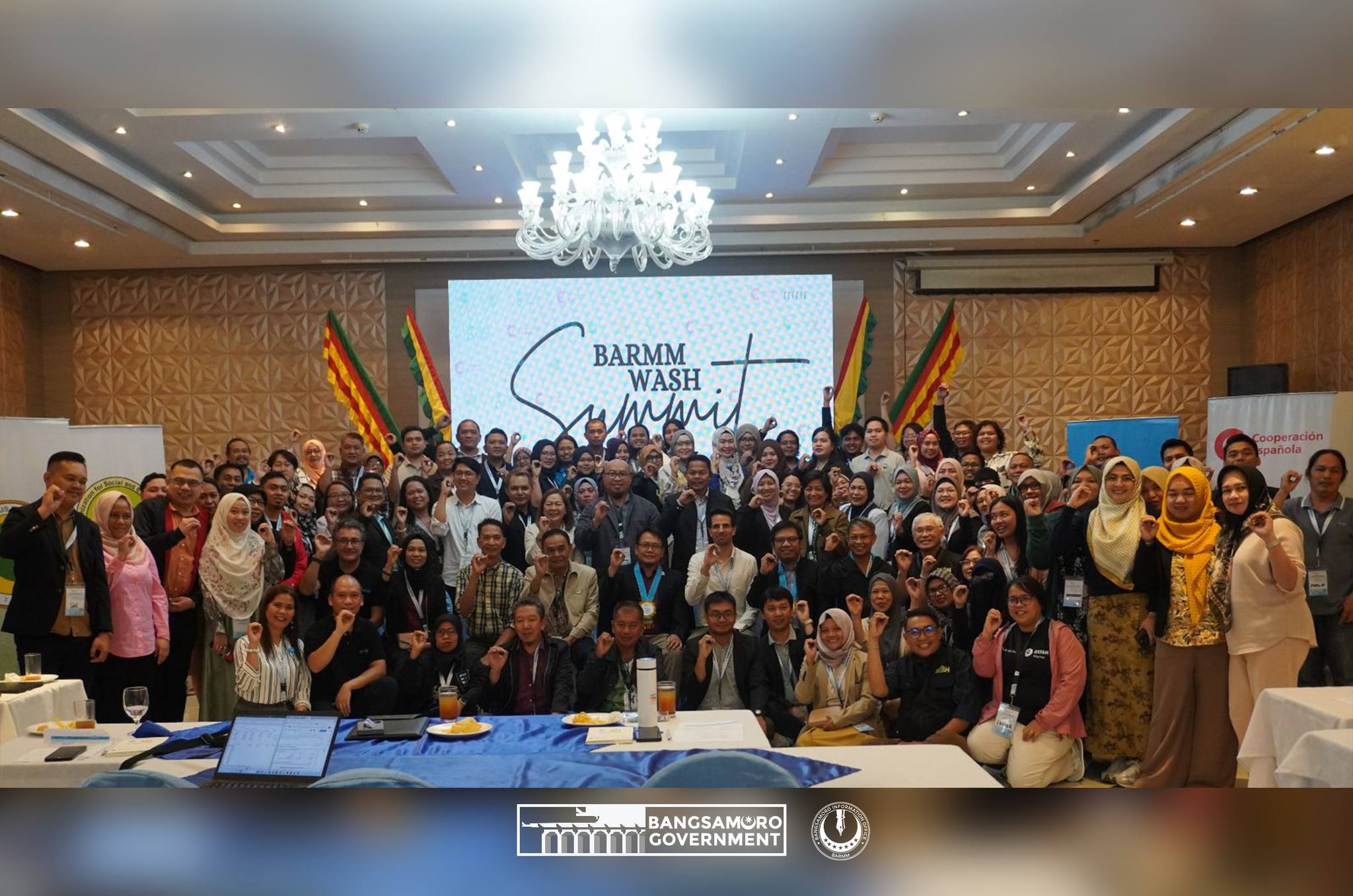DAVAO CITY— To accelerate the region’s program implementation on water, sanitation, and hygiene (WASH), members of the Bangsamoro Sub-Committee on WASH (BSCW), Local Government Units (LGU), and other stakeholders convene for the first BARMM WASH Summit on June 19-21, 2024 at The Royal Mandaya Hotel in this city.
Anchored with the theme “Beyond Barriers: WASH Now for a Better Tomorrow,” this event aims to address pressing issues on the implementation of the Water, Sanitation, and Hygiene (WASH) program across the Bangsamoro Autonomous Region in Muslim Mindanao (BARMM).
This multi-agency effort is in line with achieving one of the key components of the Sustainable Development Goals (SDGs) set by the United Nations, particularly ensuring access to clean water and sanitation. As a signatory to the SDGs, the Philippines, and by extension, the BARMM, have a commitment to make significant progress in this area.
WASH Program Implementation in BARMM
In an update provided by the Ministry of Health (MOH), according to data from the Mindanao Development Authority (MinDA), 62% of the households in Mindanao have access to safe water. In BARMM, 66.56% of families have access to basic safe water supply.
The statistics show that a significant portion of the region’s population still lacks access to clean water and sanitation facilities. These issues contribute to various health problems, as emphasized by Health Minister Dr. Kadil Sinolinding:
“If we try to look at hospital morbidity and mortalities, the top 5 leading causes of morbidities are related to water. If we can cover as much as 85%, then we can eradicate a lot of diseases.”
He further stressed that fostering collaboration among involved stakeholders is crucial to combating these compelling concerns.
“That is why we have to strengthen our collaboration as well as our stand to protect our supply and access to this potable water and the avoidance of contamination,” he said.
LGUs Leading the Way: Best WASH Practices
Two municipalities in the region, the Municipality of Wao in Lanao del Sur and the Municipality of Upi in Maguindanao del Norte, have success stories to learn from that other municipalities plan to benchmark against.
The Wao Municipality is currently Zero Open Defecation (ZOD) or G1 certified. Through the strict implementation of Ordinance No. 777, Health and Sanitation Code of the Municipality of Wao, Lanao del Sur, they were able to sustain and continually develop the health and sanitation programs of the municipality.
Meanwhile, the Upi Municipality has been ZOD G1 certified since 2017 and has achieved Basic Sanitation, or G2 certification, in 2020, the only municipality in the region to have attained this. To achieve ZOD G2 certification, it requires toilets and handwashing facilities to be available anywhere in the community.
One of the best practices they highlighted is capability development with their residents through the training of masons, where residents are trained to make their toilet bowls. This eradicates the challenge they face in transporting toilet bowls due to their mountainous terrain.
Accordingly, these feats have not been easy, but through having an enabling environment where every member of the community is working together to abandon open defecation and be willing to sustain sanitation practices, both municipalities achieved their respective certifications.
Looking Forward: Innovations and Commitments
During the summit, various innovations, like emergency sanitation and rainwater harvester facilities and portable desalination units, were presented by agency partners in a display to advance WASH initiatives.
Further, LGUs pledged their support to revitalize their campaign to promote proper hygiene and sanitation in their areas. This includes institutionalizing WASH programs and mainstreaming them in the local budget, fostering partnerships and support from stakeholders, and strengthening community awareness and involvement in ZOD through constant advocacy, among others.
Likewise, the BSCW committed to rev up efforts to strengthen WASH initiatives of the regional government to support the LGUs to be on track with the target of ZOD certification in every barangay, aligned with the Philippine Approach to Sustainable Sanitation or PhATSS by the Department of Health.
The summit generated concrete action plans and strategies to address the current bottlenecks and challenges faced, along with proposed solutions to pave the way for a more robust WASH program in the BARMM. This synergetic effort promises a healthier and more sustainable future for the region. (Bai Omairah Yusop/BIO)








